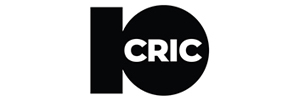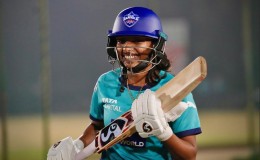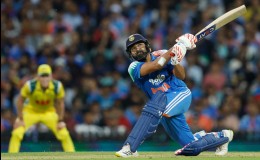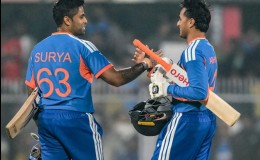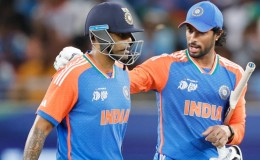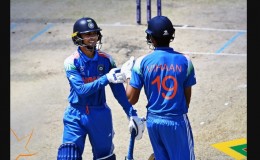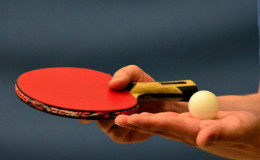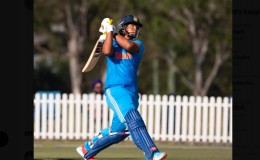Montreal: During the World Anti-Doping Agency’s (WADA) Foundation Board Meeting on Thursday, the Agency heard calls from Board Members for tougher consequences for non-compliance and for further investigations. The Board also tackled other topics – ranging from the IOC’s proposed Independent Testing Authority and the need for greater funding as demands on the Agency increase.
“WADA heard the call today from its Foundation Board members; in particular, its Athlete Committee members, who asked for tougher consequences for non-compliance and for further investigations,” said Sir Craig Reedie. “We understand fully that, in the current climate, with new doping allegations surfacing, we have work to do to further secure athletes’ confidence in clean sport,” he continued. “We appreciate the sense of urgency in light of the upcoming Rio Games and I can assure you that we take this responsibility very seriously.”
In keeping with the enhanced compliance process under the 2015 Code, the Foundation Board declared the Anti-Doping Agency of Kenya (ADAK) non-compliant with immediate effect. The Kenyan authorities had been given a series of deadlines to introduce a parliamentary bill, policy and rules for the ADAK; however, following a 2 May meeting, WADA’s independent Compliance Review Committee (CRC) confirmed that the outstanding issues had still not been addressed and so made the recommendation of non-compliance to the Board. As in all cases of non-compliance, WADA will now hand the decision over to its stakeholders, the International Olympic Committee (IOC) and UNESCO for their consideration and action.
The Polish Commission Against Doping in Sport [Poland’s National Anti-Doping Organization (NADO)] was added to WADA’s compliance ‘watch list’. The Commission was given a deadline of 12 August to pass Code compliant rules; and, 12 September to resolve the issue of their result management process or face an immediate declaration of non-compliance. Meanwhile, the NADO of Andorra was removed from the list of non-compliant Code signatories.
The Board was provided a status update regarding current testing in Russia that highlighted some limitations with its program. This update caused some alarm with members as to whether or not athletes could be assured that Russians were being properly tested in the lead up to Rio. When asked his view, Reedie said: “There is clearly still a long road ahead for RUSADA; and, this update indicates that much work needs to be done; however, now that WADA has two independent experts in place, I feel much more confident that the issues we are currently facing will be addressed without delay.”
The Board also discussed the topic of further investigations to WADA’s Independent Commission. This follows appeals that have been made and repeated by WADA’s Athlete Committee and other stakeholders to investigate further.
“WADA understands that athletes of the world were alarmed by the Commission’s outcomes; and, are concerned that other countries and sports may have similar problems,” said Reedie.
“While the Independent Commission was very effective, it’s important to note that there are many different forms of investigation and that the great majority of doping information and intelligence doesn’t necessitate an independent inquiry like the Commission,” he continued. “An example of this is our reaction to the recent CBS 60 Minutes allegations concerning Sochi, which we are probing,” he said. “There are many other ways to collect information and intelligence, including via our strengthened compliance program; the Athlete Biological Passport; and, WADA’s enhanced whistleblower program. In the event that it is determined that independent inquiry is needed, we will have established an investigations fund from which we could draw -- an action that I committed to during the previous Foundation Board meeting.”
During the Board Meeting itself, a New York Times article came out alleging that dozens of Russian athletes at the Sochi Games, including at least 15 medal winners, were part of a state-run doping program, according to the director of the country’s anti-doping laboratory at the time, Dr. Grigory Rodchenkov. “You can be sure that WADA will immediately look into these additional allegations” said Reedie.
The Board also agreed to continue the discussion regarding the International Olympic Committee’s (IOC) Independent Testing Authority proposal, which IOC President Thomas Bach first suggested in November 2015. The Board agreed that the Technical Working Group – which; in recent months, had examined the technical and financial implications of such an Authority -- would be expanded to include two new members from designated NADOs and an extra representative from team sports. The Group is tasked with outlining an initial business plan that would detail how such an Authority could be set up and run; and, assessing the budget required. In parallel, a Policy Steering Group – consisting of five sport representatives and five government representatives, chaired by Dr. Valerie Fourneyron, is to be established by 1 September 2016. Progress will be reported to the next Foundation Board.
The Foundation Board also approved the holding of a Fifth World Conference on Doping in Sport in 2019. The Fourth World Conference took place in November 2013 in Johannesburg, South Africa.

